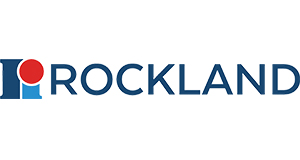HSF1 protein
HSF1 protein
Artikelnummer
ROC009-001-F50S
Verpackungseinheit
20 µg
Hersteller
Rockland
Verfügbarkeit:
wird geladen...
Preis wird geladen...
Application Note: HSF1 Protein is stored in 50mM Tris-HCl, pH 7.5, 150mM NaCl, 10mM glutathione, 0.1mM EDTA, 0.25mM DTT, 0.1mM PMSF, 25% glycerol. HSF1 Protein is suitable for use in Western Blot and Kinase Assay. Expect a band approximately ~96kDa on specific lysates or tissues. Specific conditions for reactivity should be optimized by the end user.
Concentration Value: 0.2 µg/µL
Western Blot Dilution: User Optimized
General Disclaimer Note: This product is for research use only and is not intended for therapeutic or diagnostic applications. Please contact a technical service representative for more information. All products of animal origin manufactured by Rockland Immunochemicals are derived from starting materials of North American origin. Collection was performed in United States Department of Agriculture (USDA) inspected facilities and all materials have been inspected and certified to be free of disease and suitable for exportation. All properties listed are typical characteristics and are not specifications. All suggestions and data are offered in good faith but without guarantee as conditions and methods of use of our products are beyond our control. All claims must be made within 30 days following the date of delivery. The prospective user must determine the suitability of our materials before adopting them on a commercial scale. Suggested uses of our products are not recommendations to use our products in violation of any patent or as a license under any patent of Rockland Immunochemicals, Inc. If you require a commercial license to use this material and do not have one, then return this material, unopened to: Rockland Inc., P.O. BOX 5199, Limerick, Pennsylvania, USA.
Physical State: Liquid (sterile filtered)
Purity and Specificity: Recombinant full length human HSF1 was expressed in E.coli cells using an N-Terminal Glutathione-S-Transferase fusion protein. The purity was determined to be >90% by densitometry.
Background: HSF1 is a member of the heat shock transcription factor family. Protein-damaging stress lead to the activation of HSF1 which binds to upstream regulatory sequences in the promoters of heat shock genes leading to enhanced heat shock gene expression (1). The activation of HSF1 proceeds through a multi-step pathway, involving a monomer-to-trimer transition, nuclear accumulation and extensive posttranslational modifications. HSF1 activity is regulated at different levels by heat shock proteins and co-chaperones and is modulated further by a number of mechanisms involving other stress-regulated aspects of cell metabolism (2). HSF1 Protein is ideal for investigators involved in Signaling Proteins, Transcription Proteins, Cancer, Cardiovascular Disease, Cellular Stress, Inflammation, and JNK/SAPK Pathway research.
Low Endotoxin: No
Other: Kinase Assay-User Optimized
Concentration Value: 0.2 µg/µL
Western Blot Dilution: User Optimized
General Disclaimer Note: This product is for research use only and is not intended for therapeutic or diagnostic applications. Please contact a technical service representative for more information. All products of animal origin manufactured by Rockland Immunochemicals are derived from starting materials of North American origin. Collection was performed in United States Department of Agriculture (USDA) inspected facilities and all materials have been inspected and certified to be free of disease and suitable for exportation. All properties listed are typical characteristics and are not specifications. All suggestions and data are offered in good faith but without guarantee as conditions and methods of use of our products are beyond our control. All claims must be made within 30 days following the date of delivery. The prospective user must determine the suitability of our materials before adopting them on a commercial scale. Suggested uses of our products are not recommendations to use our products in violation of any patent or as a license under any patent of Rockland Immunochemicals, Inc. If you require a commercial license to use this material and do not have one, then return this material, unopened to: Rockland Inc., P.O. BOX 5199, Limerick, Pennsylvania, USA.
Physical State: Liquid (sterile filtered)
Purity and Specificity: Recombinant full length human HSF1 was expressed in E.coli cells using an N-Terminal Glutathione-S-Transferase fusion protein. The purity was determined to be >90% by densitometry.
Background: HSF1 is a member of the heat shock transcription factor family. Protein-damaging stress lead to the activation of HSF1 which binds to upstream regulatory sequences in the promoters of heat shock genes leading to enhanced heat shock gene expression (1). The activation of HSF1 proceeds through a multi-step pathway, involving a monomer-to-trimer transition, nuclear accumulation and extensive posttranslational modifications. HSF1 activity is regulated at different levels by heat shock proteins and co-chaperones and is modulated further by a number of mechanisms involving other stress-regulated aspects of cell metabolism (2). HSF1 Protein is ideal for investigators involved in Signaling Proteins, Transcription Proteins, Cancer, Cardiovascular Disease, Cellular Stress, Inflammation, and JNK/SAPK Pathway research.
Low Endotoxin: No
Other: Kinase Assay-User Optimized
| Artikelnummer | ROC009-001-F50S |
|---|---|
| Hersteller | Rockland |
| Hersteller Artikelnummer | 009-001-F50S |
| Verpackungseinheit | 20 µg |
| Mengeneinheit | STK |
| Konjugat | Unconjugated |
| Produktinformation (PDF) | Download |
| MSDS (PDF) |
|

 English
English










